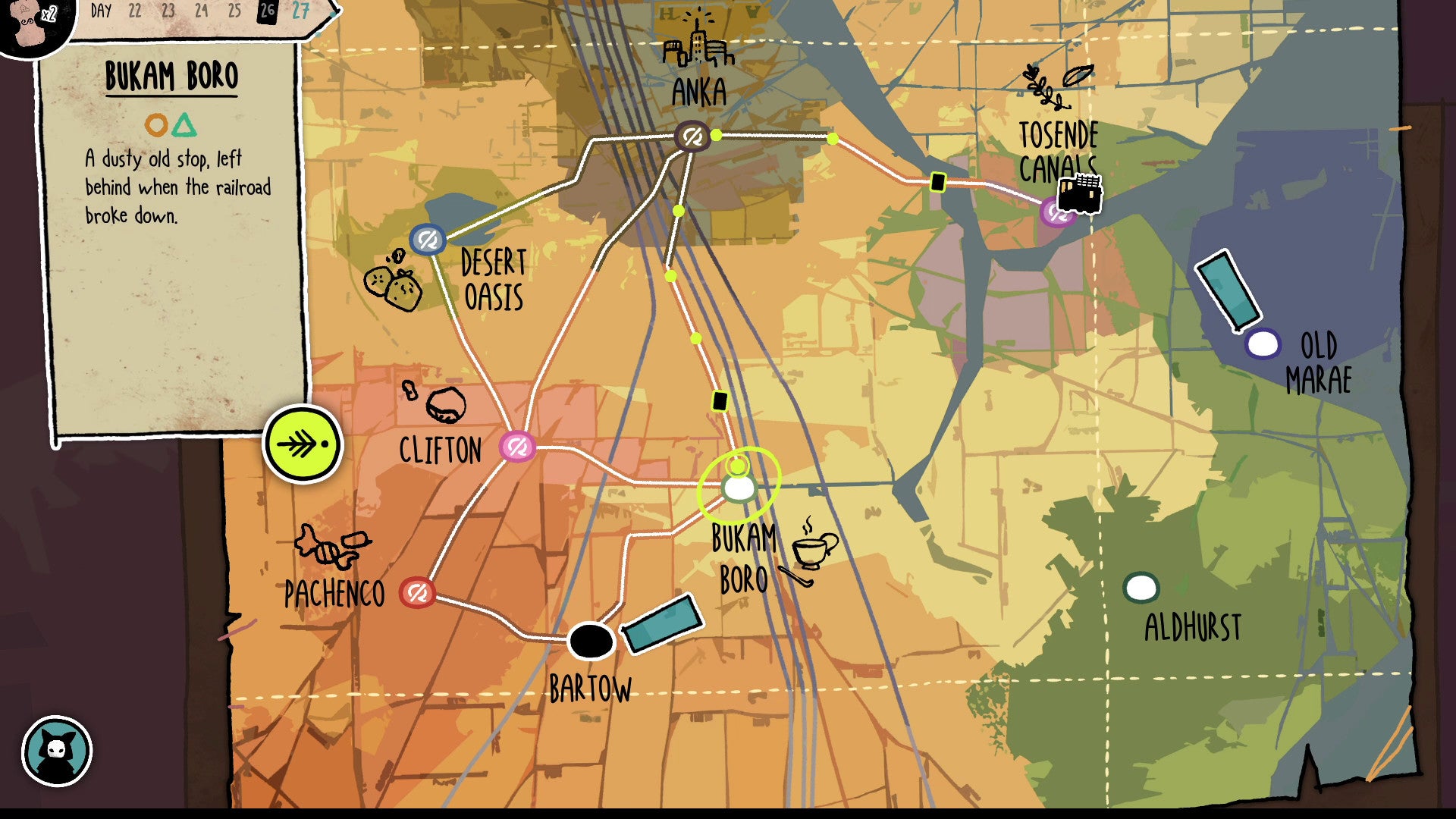The entire game is effectively a string of conversations you have with fellow travellers. These take the form of simple games of symbol-matching, and you’ll need to use the cards in your hand correctly to advance the conversation and hopefully get a nice trinket at the end of it to take back to your village shop at the end of your caravan journey. You can very easily go it alone, but there’s also a travelling caravan group your mum used to pal around with, too, that you can follow on your travels as well. This group is pitched as something of a life-line to your town, and to begin with you sort of feel obliged to stick with their strict schedule marked out on your calendar. Deviating from their route often brings with it some harsh words when you arrive back home, but I found the game’s tantalising trail of other tidbits and leads far more interesting. After all, why should I simply follow in my mum’s footsteps just because that’s the way it’s always been? I wanted to stride out and make a name for myself on my own terms, and the game’s plentiful supply of characters and situations gives you the opportunity to do that. It’s not always plain sailing, though. When you travel to a new area, you don’t always necessarily have the cards / vocabulary to make a good first impression. You’ll ’lose’ conversations just as often as ‘winning’ them in Signs Of The Sojourner, and sometimes you’ll make no progress at all. When you’ve only got five trips you can make in a single playthrough, moments like this can sometimes feel like a wasted effort, like you could have been having more fruitful conversations and discoveries closer to home. Your persistence is rewarded, though, when at the end of each encounter you get to choose a card from their deck to add to your own. This happens whether you win or lose a conversation, and over time and repeated tries you gradually learn to communicate with the people who previously turned you away, a bit like learning a new language in real-life. However, every new card you acquire also comes at the cost of one that’s already currently in your own deck, and deciding which cards to discard and which ones to keep can sometimes be surprisingly difficult. Indeed, the more time you spend trying to connect with others in distant, far-flung locations, the harder it is to maintain the relationships you have with the people you knew back home, as you no longer have as many cards to keep up with them. It’s a bittersweet moment when you return home and no longer have the same easy-going friendship with your mate Elias as you once did (captured brilliantly in the tender twangs and sentimental strums of Skewsound and Steve Pardo’s rustic soundtrack), and it made me think of all the friendships I’ve left fall by the wayside in my own life because I haven’t put in the time to keep them going. Occasionally these moments ring a little hollow - the mark of a great friendship, I’d argue, is that you’re able to slip effortlessly back in to your old ways when you meet up with a pal after a long time apart, and there are certain characters in Signs Of The Sojourner that you feel should probably react in a similar fashion - a bit like how your dog will always match whatever cards you put down because they love you unconditionally (d’aww). These wrinkles aside, Signs Of The Sojourner is a fascinating study of the way we communicate with those around us, and probably lays claim to the most unique dialogue system in the history of video games. The way you choose to navigate the hand you’re dealt (both literally and figuratively) makes this a deck-builder for the ages.
